Our People
Director
 Prof. Douglas J. Davies FAcSS, FLSW, FBA
Prof. Douglas J. Davies FAcSS, FLSW, FBA
douglas.davies@durham.ac.uk
Professor in the Study of Religion, Durham University
Douglas J. Davies is an anthropologist and theologian specialising in the history, theology, and social-scientific study of death. His broader academic interests embrace the anthropology and sociology of religion, Mormonism, Sikhism, Anglicanism, and the ongoing interface between Anthropology and Theology (2002). Noteworthy titles include The Encyclopedia of Cremation (2005); The Theology of Death (2008); Natural Burial: Traditional-Secular Spiritualities and Funeral Innovation (2012); and Mors Britannica: Lifestyle and Death-Style in Britain Today (2015). Death, Ritual, and Belief: The Rhetoric of Funerary Rites, now in its third edition (2017), has been translated into five languages. Elected as a Fellow of the Academy of Social Sciences in 2009, the Learned Society of Wales in 2012, and the British Academy in 2017, Douglas' outstanding contribution to scholarship has also been recognised in numerous international collaborations and professional appointments, and by an honorary doctorate in 1998 from Uppsala University, shortly followed, in 2004, by a higher doctorate (D.Litt.) from the University of Oxford. In 2024, Douglas published a major six-volume work on The Cultural History of Death spanning 2,500 years from Classical Antiquity to the Modern Age.
Honorary Professors
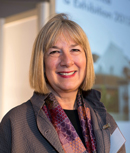 Prof. Hilary Grainger OBE, FSA
Prof. Hilary Grainger OBE, FSA
h.j.grainger@fashion.arts.ac.uk
Professor Emerita of Architectural History, University of the Arts, London
Hilary Grainger is an architectural historian specialising in nineteenth and twentieth century architecture with particular interest in the work of Victorian architect Sir Ernest George and on crematoria architecture across the UK. Her books include Death Redesigned: British Crematoria: History, Architecture and Landscape (2005); The Architecture of Sir Ernest George (2011); Designs on Death: The Architecture of Scottish Crematoria (2020); and, with Peter Jupp, Douglas Davies, Gordon Raeburn, and Stephen White, Cremation in Modern Scotland History, Architecture, and the Law (2017). Chair of the Cremation Society of Great Britain, Vice-President of the International Cremation Federation, Chair of the Victorian Society, and Fellow of the Society of Antiquaries, Hilary brings extensive experience to her recent appointment as an Honorary Professor of Durham's Department of Theology and Religion. She was awarded an OBE in 2018 for Services to Higher Education.
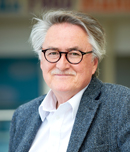 Prof. Allan Kellehear FAcSS
Prof. Allan Kellehear FAcSS
allan.kellehear@northumbria.ac.uk
Professor in Health and Social Care, Northumbria University
Allan Kellehear is a medical and public health sociologist. His research interests span the interdisciplinary study of dying conduct and experiences, and the development and advocacy of public health approaches to palliative and end of life care. Allan has held Professorships in Australia, Japan, England, and the USA. Among his books about dying are A Social History of Dying (2007), The Inner Life of the Dying Person (2014), and Visitors at the End of Life: Understanding Meaning and Purpose in Near-Death Phenomena (2020). He is co-editor (with Julian Abel) of the Oxford Textbook of Public Health Palliative Care (2022) and contributor to the Lancet Commission Report on The Value of Death: Bringing Death Back to Life (2022). Alan was elected Fellow of the Academy of Social Sciences in 2011. He is a Co-Founder of Compassionate Communities UK and has served as President of both the Association for the Study of Death and Society (2013-17) and Public Health Palliative Care International (2015-19).
Advisory Board
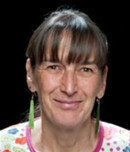 Prof. Charlotte Roberts FBA
Prof. Charlotte Roberts FBA
c.a.roberts@durham.ac.uk
Professor Emerita of Archaeology, Durham University
Charlotte Roberts is a bio-archaeologist with a particular focus on how humans interact with their environments through patterns of health and disease (paleopathology). Her work, over forty years, has been highly influential through such works as Health and Disease in Britain: From Prehistory to the Present Day (2003); The Archaeology of Disease (2005); three editions of the Handbook of Human Remains in Archaeology (2009, 2012, 2018); and Leprosy: Past and Present (2020). Numerous articles, chapters, and media outputs on wide-ranging subjects are complemented by her exceptional track-record of public engagement. Charlotte served as President of the Paleopathology Association (2011-13) and, in 2014, was elected as a Fellow of the British Academy.
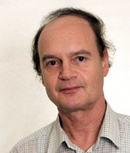 Prof. Geoffrey Scarre
Prof. Geoffrey Scarre
g.f.scarre@durham.ac.uk
Professor Emeritus of Philosophy, Durham University
Geoffrey Scarre is a moral philosopher and former Co-Director of the Centre for the Ethics of Cultural Heritage at Durham University. Geoff has published widely on topics in applied ethics and moral philosophy, including evil, death, the Holocaust, forgiveness, courage, heritage, the ethics of archaeology, aging, and remembrance. Noteworthy titles include After Evil: Responding to Wrongdoing (2004); Death (2007); and Appropriating the Past: Philosophical Perspectives on the Practice of Archaeology (2013). He also has special interests in a variety of philosophers and intellectual movements of the 19th century, particularly J.S. Mill and utilitarianism, which are especially valuable for the Centre's forthcoming quadrilogy on Death, Loss, Memory, and Mourning in the Long Nineteenth Century, 1780-1914. Geoff’s recent monograph explores the thorny ethical issues associated with Judging the Past (2023).
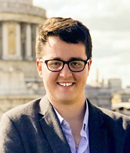 Mr Ricky Whitefield
Mr Ricky Whitefield
r.n.whitefield@durham.ac.uk
Junior Research Fellow, St John's College, Durham University
Ricky Whitefield is an anthropologist and theologian. After an initial degree in Theology at Durham, Ricky moved to Oxford to pursue an M.Phil. in Theology with a focus on nineteenth and twentieth century European intellectual history, particularly in the work of Friedrich Schleiermacher (1768-1834) and Paul Tillich (1886-1965). Ricky’s interests have since broadened and crystallized around social anthropology, psychology, and the phenomenology of religion, all with an eye to their intellectual and practical co-evolutions and co-applications. Current writing projects include a co-authored volume, with Douglas Davies, on The National Memorial Arboretum; a four-volume set, with Mark Sandy et al, on Death, Loss, Memory, and Mourning in the Long Nineteenth Century, 1780-1914; and an assortment of articles emerging from research in the archive of long-forgotten anthropologist Geoffrey Gorer (1905-1985). In 2020, Ricky was elected as Fellow of the Royal Anthropological Institute and, a year later, as Fellow of the Royal Society of Arts. He became a Fellow of the Institute of Medical Humanities in 2024.
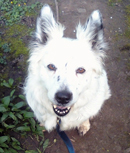 Prof. Julie-Marie Strange
Prof. Julie-Marie Strange
julie-marie.strange@durham.ac.uk
Professor of Modern British History, Durham University
Julie-Marie is a Victorianist with long standing interests in death and grief. Her first book, Death, Grief and Poverty, 1870-1914 (2005), explored the profound emotional lives of ordinary people experiencing bereavement in late-Victorian and Edwardian Britain. Other key titles include Fatherhood and the British Working Class, 1865-1914 (2015); The Charity Market and Humanitarianism in Britain, 1870-1912 (2018) with Sarah Roddy; and The Invention of the Modern Dog: Blood and Breed in Victorian Britain (2018) with Michael Worboys and Neil Pemberton. In 2020, Julie-Marie commenced a three-year Leverhulme Research Fellowship for a project on Love in the Time of Capitalism: Emotion and the Making of the Working Class, 1848-1914.
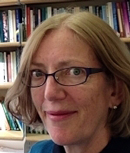 Prof. Sarah Atkinson
Prof. Sarah Atkinson
s.j.atkinson@durham.ac.uk
Professor of Geography, Durham University
Sarah Atkinson is a cultural geographer with interests in individual and community wellbeing; spaces and practices of care and the body; arts, health and wellbeing; the critical medical humanities; and strategic policy developments for global health. Although she has written widely across these fields, her key titles include Wellbeing and Place (2012); The Edinburgh Companion to the Critical Medical Humanities (2016); and Geohumanities and Health (2019). In addition to her role in the Geography department, Sarah is an Associate Director of the Institute of Medical Humanities with responsibility for leading the Institute's 'Everyday Environments' research initiative. In 2014, Sarah was invited to join the World Health Organization's international steering group which focuses on the 'cultural determinants of wellbeing'. She has since been invited to deliver keynote addresses in New Zealand, Sweden, Denmark, Finland, and the US.
Mr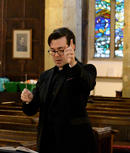 Matthew McCullough
Matthew McCullough
matthew.mccullough@durham.ac.uk
Department of Music, Durham University
Matthew McCullough is a musicologist specialising in nineteenth and twentieth century British music at the intersection of war, death, trauma, and memory studies. Matthew is currently a PhD student in the Department of Music under the supervision of Professor Jeremy Dibble and Professor Julian Horton. His wide-ranging research on the cultural and analytical aspects of British music is engaged through a volume, with Douglas Davies, on Music, Mortality, and Memory (2025) and by a four-volume set on Death, Loss, Memory, and Mourning in the Long Nineteenth Century, 1780-1914 (2024). Matthew’s PhD project picks up where these volumes end by exploring ‘Music Against Death’: Loss, Memory, and Mourning in British Composers' Musical Responses to the Great War, 1915-1921. Meanwhile, the life and music of Gerald Finzi, manuscript editing and performance, and harmony and counterpoint remain active research areas. Matthew's own editions of three ‘Grace Anthems’ by Alan Gray, uncovered during archival work at Trinity College, Cambridge, will be published by the RCSM in 2024. Matthew was elected Associate Fellow of the Higher Education Academy in 2023.
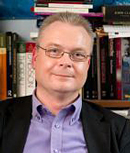 Prof. Mark Sandy
Prof. Mark Sandy
m.r.sandy@durham.ac.uk
Professor of English Literature, Durham University
Mark Sandy is a literary scholar specialising in Romanticism and its legacy in twentieth-century American literature. His wide-ranging literary and philosophical interests embrace Romantic poetry and poetics, ageing, memory, mourning, mortality, subjectivity and grief as well as questions of Romantic legacy, inheritance, and disinheritance. Among his many works are Poetics of Self and Form in Keats and Shelley (2005); a four-volume set, with Michael O'Neill, on Romanticism: Critical Concepts in Literary and Cultural Studies (2005); Romanticism, Memory, and Mourning (2013); and Ghostly Encounters: Cultural and Imaginary Representations of the Spectral from the Nineteenth Century to the Present (2021). A complementary book-length study, Spectral Presences in Romantic and Victorian Poetry: From Wordsworth to the Brownings, is now underway. Mark is General Editor of the Centre's forthcoming four-volume set on Death, Loss, Memory, and Mourning in the Long Nineteenth Century, 1780-1914.
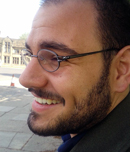 Dr Giorgio Scalici
Dr Giorgio Scalici
scalicigiorgio@gmail.com
Research Fellow in the Department of Religion, La Sapienza University, Rome
Giorgio Scalici is an ethnomusicologist working at the intersection of death studies, religion, and the anthropology of ritual-symbolism, emotion, and music. In addition to several journal articles and chapters, Giorgio is preparing his first monograph, Pain, Play and Music: Death and Healing Rites Among the Wana (2024), which focuses on the values expressed by the Wana rituals and the role of music and religion in managing shared emotion in times of crisis, death, and illness. His current work focuses on Italian funeral laws and their impact on the grieving and integration processes of religious minorities. More widely, Giorgio is interested in the thematization of mortality in Italian music and in comic books. As well as longstanding service to the Association for the Study of Death and Society, Giorgio has served as President of the Italian Network on Death and Oblivion since 2023.
 Dr Georgina Robinson
Dr Georgina Robinson
georgina.m.robinson@durham.ac.uk
Research Associate in the Department of Theology and Religion, Durham University
Georgina M. Robinson works across the interdisciplinary field of death studies. Her doctoral project, Alkaline Hydrolysis: The Future of British Death-Styles, pioneered the first study of ‘Resomation’ as a funerary innovation in the United Kingdom. Her publications include ‘Alkaline Hydrolysis in the United Kingdom’ in The Sustainable Dead: Searching for the Intolerable, Ruth McManus (ed.) (2023: 76–92); ‘Dying to Go Green: The Introduction of Resomation in the United Kingdom’ Religions. 2021. 12(2): 97; and ‘The Disposal of the Body: Environmental Concerns’ Pharos International. 2020, 86(1): 42–46. Since 2023, Georgina has worked as a post-doctoral Research Associate on the major Digital Death project, funded by the EU’s CHANSE scheme, which brings colleagues together from Finland, Denmark, and Romania. Meanwhile, Georgina continues to develop her doctoral work for publication and is currently co-authoring a book, with Douglas Davies, on the Ecologies of Death. Georgina became an Associate Fellow of the Higher Education Academy in 2022.
Postgraduates
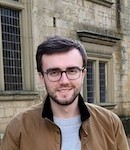 Mr Daniel Burrell
Mr Daniel Burrell
daniel.d.burrell@durham.ac.uk
Department of History, Durham University
Daniel Burrell is a historian specialising in the emergence of 'Cremationism' as an eclectic phenomenon in late nineteenth-century Britain. Daniel is currently a PhD student at our Centre for Death and Life Studies under the supervision of Professor Julie-Marie Strange. His PhD project, Race, Religion, Nationhood, and Empire: Rethinking Cremationism in Late Nineteenth-Century Britain, attempts to rethink 'Cremationism' as a broad and pluralistic philosophy, rather than a discrete social movement, which served as a space for the conceptualisation and contestation of an imagined modernity. Daniel's broader interests include the significance of British and global public engagement with the century's recursive tropes of race and the 'other', class division, religious pluralisation, gender, sexuality, the family, as well as British nationhood and empire. The Cremation Society Archives, curated by Durham University, have proven to be an invaluable resource for Daniel's primary research.
 Dr Myongjin Agnes Cho
Dr Myongjin Agnes Chomyongjin.a.cho@durham.ac.uk
Department of Theology and Religion, Durham University


/prod01/prodbucket01/media/durham-university/research-/73895-2-1920X290.jpg)